FASP 52nd Annual Conference
IGNITE the Future of School Psychology
October 14–18, 2025 | Innisbrook Resort, Palm Harbor, FL
Added Pre-Conference Workshops with CEs on Tuesday, October 14th
Plus bonus Tuesday evening session on Private Practice
The Florida Association of School Psychologists (FASP) is thrilled to announce the 2025 Annual Conference will be held October 14–18 at the breathtaking Innisbrook Golf Resort in Palm Harbor! This year’s theme, IGNITE the Future of School Psychology, promises to inspire, energize, and elevate your professional practice.
Mark your calendars and register NOW! FASP has added two pre-conference workshops on Tuesday, October 14. There will be a bonus session on Tuesday evening about Private Practice with Monica Oganes — 2 CE/CPDs FREE for registered conference attendees! As usual, post-conference workshops will be offered on Friday.
FASP Conference Co-Chairs Valentina Jolta and Monica Oganes, along with FASP President-Elect Amy Clark and the Conference Committee, are curating an unforgettable program featuring a powerhouse lineup of presenters: Cecil Reynolds, Jack Naglieri, Sam Goldstein, Sam Ortiz, George McCloskey, Matt Burns, Nancy Mather, Phil Lazarus, Steve Feifer, Peter Isquith, Adam Lockwood, Byron McClure, Elvira Medina-Pekofsky, June Zillich, Noelle DeLaCruz, Rance Harbor, Gene Cash…and more! These nationally renowned experts will cover a wide range of topics aligned with all NASP Domains of Practice—this is professional development at its finest!
Attendees who join us for the full conference will have the opportunity to choose from sessions offering a total of 59 CE/CPD credits, including pre and post conference workshops, and Saturday sessions on medical errors and domestic violence, perfect for Florida licensure renewal. All our CE/CPD offerings qualify toward Florida DOH licensure and NCSP recertification. NEW this year, we are offering a Virtual+ package for conference attendees to purchase. When you add this option to your registration, you will be able to watch up to 14 recorded invited speakers’ workshops at your convenience for one month after the conference. That’s right! You don’t have to miss other sessions occurring at the same time! Each recorded workshop offers 3 CE/CPD credits. There will not be a virtual-only registration option.
 We are grateful to our generous sponsors—PAR, MHS, and Riverside Insights—for helping us bring this incredible experience to life.
We are grateful to our generous sponsors—PAR, MHS, and Riverside Insights—for helping us bring this incredible experience to life.
Join us at the Innisbrook Golf Resort for five days of learning, networking, and rejuvenation surrounded by Florida’s natural beauty. We’re working behind the scenes to bring you exciting surprises, expanded learning opportunities, and meaningful ways to connect with colleagues.
Reserve your stay at the Innisbrook Golf Resort. Rooms are available at the FASP negotiated rate of $149 per night + taxes. There is an additional daily resort fee of $40 which includes coffee service in-room, self-parking, on-property transportation, 24-hour security and access to the resort amenities such as non-motorized bicycles, swimming pools, fitness center, miniature golf, the Osprey Driving Range with a complimentary bucket of golf balls per person per day, and tennis court access for one hour per day.
We can’t wait to see you there!
For questions, contact the AC team at faspannualconference@gmail.com.
FASP is approved by Florida Department of Health’s Division of Medical Quality Assurance (MQA) to offer CEs toward licensure for continuing education. CEs are available for School Psychologists and Psychologists (50- 693); Mental Health Counselors, Marriage and Family Therapists and Clinical Social Workers (BAP-174).FASP is a NASP approved provider to offer CPDs (#1029). There will be strict adherence to virtual attendance procedures to allow us to continue to offer CEs and CPDs.
NOTE: FASP cannot offer in-service points for renewal of Florida certification for Certified School Psychologists or other educational specialists holding a professional certificate issued by the Florida Department of Education (FDOE). However, many school districts have procedures to obtain in-service points toward renewal of FDOE certificates under their master in-service component. Participants should check with their school district’s certification officer to verify eligibility and procedures to earn in-service points for FASP workshops.
- Florida Licensed PSYCHOLOGISTS (PY# or LPY#) MUST attend “LIVE” sessions in order to earn CEs.
- Licensed SCHOOL PSYCHOLOGISTS (SS#) may receive CEs for live or on-demand sessions.
For any CE questions please contact: CE@fasp.org
REGISTER NOW
For planning purposes, the registration fee schedule is provided below. Attendees can earn up to 59 CE/CPD credits, including sessions required for licensure renewal. Registration includes access to all conference sessions, materials, and special events for each day purchased.
FASP AC 2025 Registration Fees
Tuesday, Wednesday & Thursday (Pre-Conference & Conference)
- Early Career/Retired Members $250
- Regular/Associate Members $325
- Student Members $135
- Non-Members $475
Please Note: There is NO Tuesday/Pre-conference Only option
Wednesday & Thursday Only (Conference)
- Early Career/Retired Members $190
- Regular/Associate Members $250
- Student Members $105
- Non-Members $375
Wednesday, Thursday & Friday (Conference & Post-Conference)
- Early Career/Retired Members $250
- Regular/Associate Members $325
- Student Members $135
- Non-Members $475
Tuesday, Wednesday, Thursday, & Friday (Pre-Conference, Conference & Post-Conference
- Early Career/Retired Members $325
- Regular/Associate Members $400
- Student Members $170
- Non-Members $550
Friday Only (Post-Conference)
- Early Career/Retired Members $120
- Regular/Associate Members $150
- Student Members $75
- Non-Members $175
Saturday
- Members Medical Errors or Domestic Violence only, Pre-registered $30, On-site $40
- Members Medical Errors AND Domestic Violence, Pre-registered $50, On-site $70
- Non-Member Medical Errors or Domestic Violence only, Pre-registered $60, On-site $70
- Non-Members Medical Errors AND Domestic Violence, Pre-registered $110, On-site $130
Innisbrook Attendee Virtual+ Package*
Virtual+ Package option for Tuesday through Friday Invited Speaker CE sessions
In addition to attending registered sessions, the Virtual+ Package gives access to the 14 featured speaker presentations on Tuesday through Friday, PowerPoint presentations with presenter audio recordings for CE/CPD credit. It will be available for one-month immediately following the conference, in time for CE renewal.
14 CE sessions, 3 hours each
Virtual+ Package is $500 for all registered FASP member attendees (Pre-conference, Conference or Post-Conference packages) – Non-member registered sttendees $650.
*The Virtual+ Package is available to registered Innisbrook attendees only. There is no option to purchase the Virtual+ only.
The 2025 FASP 52nd Annual Conference will be held at the beautiful
Innisbrook Golf Resort Palm Harbor, Florida
Special group rates are available for FASP attendees:
- Room Rate: $149/night (single or double occupancy)
- Resort Fee: $40/night
- Additional Adults: $20 per person/night
- Taxes: Applicable sales and occupancy taxes will be added to all nightly charges
This resort offers spacious accommodations and access to award-winning amenities, walking trails, and serene natural surroundings—perfect for learning and relaxation!
Secure your room today to ensure this special conference rate—available only until September 15th or until our block sells out, whichever comes first. Book your stay at the Innisbrook Golf Resort NOW!
FASP is a statewide professional organization of over 500 school psychologists working across Florida’s 67 districts in public, private, and alternative education settings. Our members support the academic, behavioral, and mental health needs of children and youth through comprehensive services and data-informed decision-making.
Exhibiting at the FASP Annual Conference is a valuable opportunity to connect with influential professionals who shape decisions in schools, private practice, higher education, and community agencies. This event draws over 400 attendees, offering high visibility and direct engagement with your target audience.
Exhibitor setup is scheduled for Tuesday, October 14 from 4:00 PM to 8:00 PM. Exhibits will be open on Wednesday and Thursday, with takedown beginning Thursday after 5:30 PM. Exhibitors are welcome to stay through Friday, October 17, but must coordinate with the conference chairs in advance.
Exhibitors may sell new products or services on-site with prior approval from FASP regarding the type of items offered. The sale of used items is not permitted. All sales must be conducted within the assigned booth space and comply with applicable laws and tax regulations. FASP assumes no responsibility or liability for sales transactions, tax collection, or customer service related to on-site purchases.
All vendors must provide:
- Proof of registration to conduct business in Florida (e.g., LLC or business license)
- Registration with the State of Florida for collection and remittance of sales tax (if approved for on-site sales)
- Current certificate of liability insurance
For questions or to coordinate Friday participation, contact the conference chairs at sponsorship@fasp.org.
Looking to plan your time at the conference? Use this session planner to guide you! You can also download the session planner here. Just a heads-up, the schedule might be updated, so check back periodically to make sure you have the latest information.
To view the agenda for this year’s annual conference, see our Conference at a Glance
Morning Session (10:00 am – 12:50 pm) – 3 CE/CPD
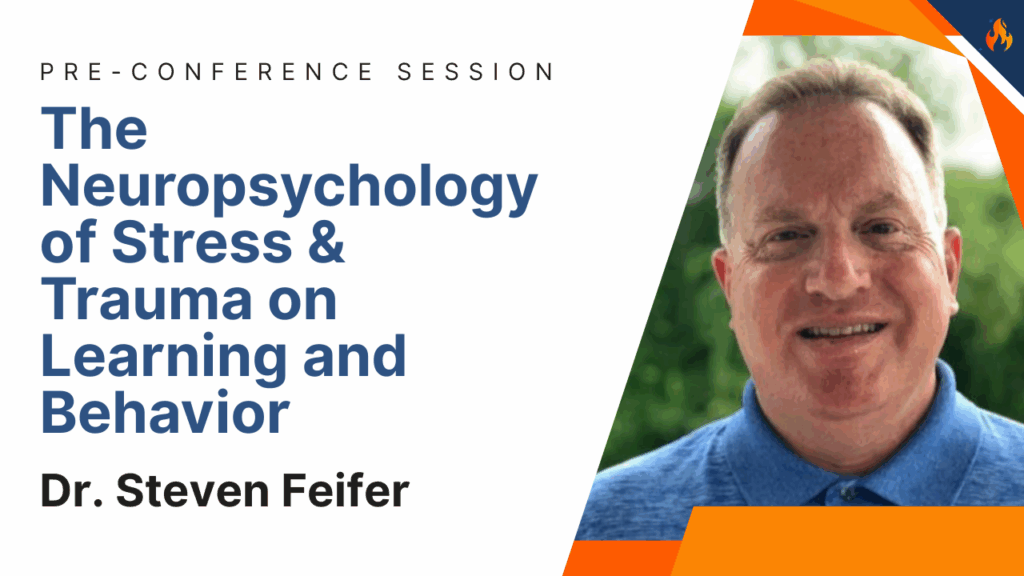
This workshop will explore the neural underpinnings of stress and trauma on learning and behavior. There will be a discussion on specific brain regions impacted by trauma, as well as the relationship between trauma and poor academic performance. Assessment strategies and practical classroom interventions will be emphasized.
Learning Objectives
- Discuss the prevalence of trauma and stress for school aged children, as well as the various sources from which trauma can occur.
- Explore key brain regions that are impacted when students experience stress and trauma, and the subsequent effect on academic and social skills’ development.
- Introduce the FACT trauma scale to measure the impact of trauma on academic and social-emotional functioning in a school environment.
- Review five essential steps toward the development of a “trauma informed” school.
Domain 4 Mental & Behavioral Health Services & Interventions
Afternoon Session (2:00 – 4:50 pm) – 3 CE/CPD
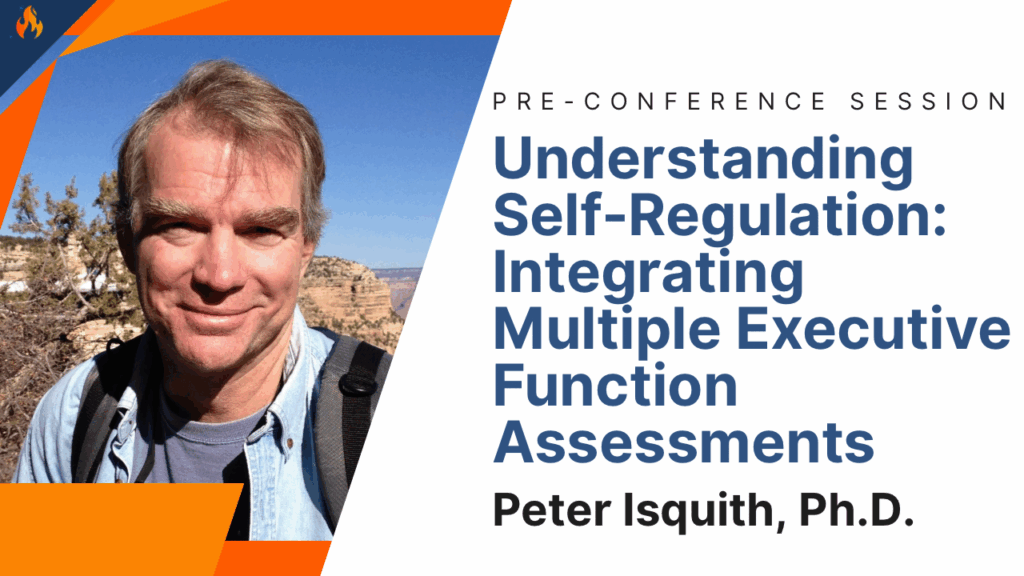
Children’s self-regulation predicts long-term academic, social, emotional, economic, and health outcomes. The most common assessment approach includes gathering observer input on rating scales along with student test performance. These approaches often produce disparate results. Learn to interpret multiple sources of executive function data and write concise integrated assessments of self-regulation.
Participates will be able to:
- Describe evidence for valid interpretation of scores from the BRIEF and performance “tests” of executive function
- Articulate a model for integrating assessment findings
- Write an effective interpretation of findings from multiple executive function measures
Domain 1 Data Based Decision Making & Accountability
Bonus Session – (6:00-7:50 pm) – 2 CE/CPD
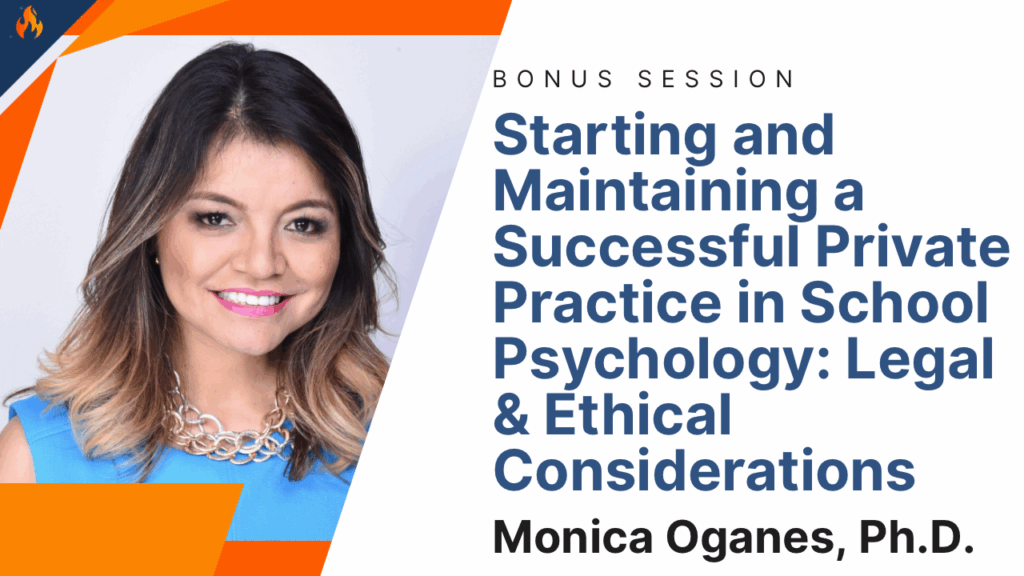
In this interactive session, participants will learn the ethical, professional, and legal standards of starting and maintaining a successful school psychology private practice in the State of Florida. Information presented will include the business aspects of having an individual or group practice, the scope of practice, liability of practice, ways to communicate effectively with stakeholders, advertising, and other aspects of running a thriving private practice in the State of Florida.
Learning Objectives
At the end of this workshop, participants will understand:
- Licensure requirements for private practice in school psychology in the State of Florida
- Legal and ethical considerations to operate a private practice in school psychology
- Business and financial aspects of running a private practice
- Guidelines for the practice of Telepsychology
- Marketing and advertising a private practice
Domain 10 Legal, Ethical & Professional Practice
Wednesday & Thursday CE/CPD Sessions – View Summaries and Objectives Here
Wednesday, October 15, 2025 – 14 CE/CPD
- Using the WJ V to Diagnose Dyslexia (3 CEs) Nancy Mather, Ph.D.
- The Role of School Psychologists in Advancing Safety, Inclusion, and Belonging for LGBTQ Youth (3 CEs) Noelle DeLaCruz, Ph.D.
- What We Need to Know About Intelligence and How Best to Obtain It (3 CEs) Cecil Reynolds, Ph.D.
- Enhancing Self-Regulation to Support Students (3 CEs) Peter Isquith, Ph.D.
- A Relational Approach to School Psychology Supervision (2 CEs) Kasi, Ph.D., Gallardo-Cooper, Ph.D., Caproni, Ph.D.
Thursday, October 16, 2025 – 18 CE/CPD
- Assessment to Intervention to Assessment: Using Data to Make a Difference (3 CEs) Matthew Burns, Ph.D.
- The Role of the School Psychologist in Supporting Resilience, Wellbeing, and Mental Health (3 CEs) Elvira Medina-Pekofsky, MS, CAS
- Beyond the Numbers: Understanding the Story Behind Assessment Scores (2 CEs) Julie Gettman, Ph.D.
- Legislative Updates 2025: Hot Topics (1 CE) Austin Cole, Ph.D.
- From What’s Wrong to What’s Strong: Building Strength Based Habits (1 CE) Byron McClure, D.Ed.
- What I Learned About Intelligence Tests Over 50 Years as a School Psychologist (3 CEs) Jack Naglieri, Ph.D.
- Essential MTSS Practices for Multilingual Learners (3 CEs) June Zillich, Ed.D.
- ASD Assessments with Preschoolers: Toys, Measures & Best Assessment Practices (2 CEs) Alessandra Chiesa, Ph.D.
Friday Morning Sessions (8:30 – 11:20 am) – 3 CE/CPD
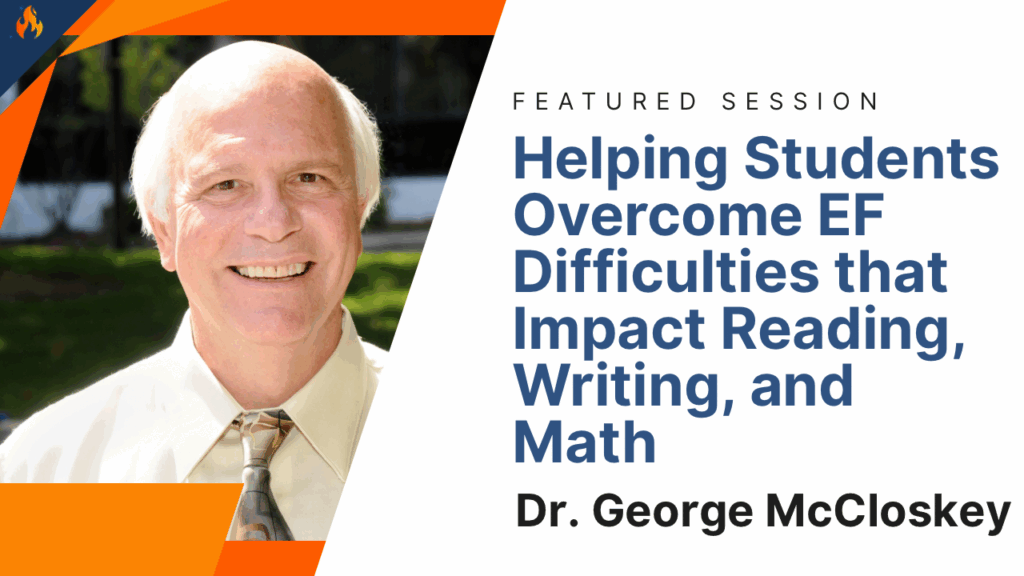
This workshop offers an in-depth exploration of executive functions and their crucial role in learning and using reading, writing, and math skills. Participants will gain a deeper understanding of how motivation influences the development of these skills and learn to identify specific challenges in reading, writing, and math that stem from executive function deficits.
The session will also cover practical interventions and strategies to help students strengthen their executive functions, ultimately boosting their academic proficiency. Whether you are a teacher, school psychologist, or educational specialist, this workshop will equip you with the tools to better support students in overcoming executive function difficulties and achieving their full academic potential.
Learning Objectives:
- Explain the role of executive functions in reading, writing, and doing math
- Describe how executive function difficulties impact reading, writing, and math production
- Apply assessment techniques to determine how executive function difficulties impact reading, writing, and math proficiency
- Apply instructional techniques that address reading, writing, and math problems releated to executive function difficulties
Domain 4 Mental & Behavioral Health Services & Interventions
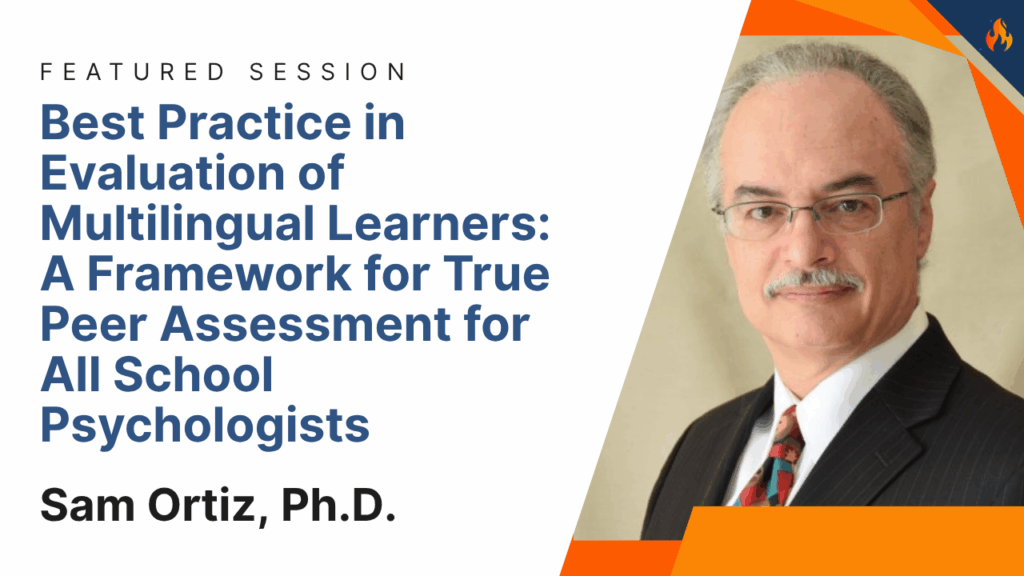
This workshop will present current research on language, cognitive, academic development, and their application to evaluation within a comprehensive, research-based framework for generating valid data to support conclusions and decisions regarding the presence or absence of various types of disorders with culturally and linguistically diverse learners with specific focus on making defensible decisions designed to reduce over-representation and disproportionality. Participants will be given instruction covering the implementation of evaluation procedures in a step-by-step manner for adequately measuring various abilities, guidelines for evaluating the validity of test scores, rules governing the selection and use of scores generated via testing in English vs. the native language, and specific guidance via case study examples that illustrate application and use of research-based methods and nondiscriminatory tools and procedures. Main topics include: understanding bias in testing; problems regarding test score validity; how typical methods fail in establishing test score validity; use of a broad, comprehensive framework for evaluation that can be utilized by any practitioner regardless of bilingual capability, use of the freely available Culture-Language Interpretive Matrix (C-LIM) and C-LIM+Achievement Test Extensions (C-LIM+ATE), and the True peer Estimator (TPE) in evaluating exclusionary factors, and integration of the Ortiz PVAT for valid measurement of vocabulary and general language acquisition. The knowledge and skills gained will be useful to practitioners at all levels and provides a solid base for engaging in evaluation of English learners that constitutes defensible and current best practices regardless of personal and professional bilingual capability.
Learning Objectives:
In general, participants will be able to–
- Apply the basic steps and process involved in conducting comprehensive and systematic evaluation of culturally and linguistically diverse learners.
- Utilize the contemporary, evidence-based for addressing exclusionary criteria in evaluation and establishing valid scores for measurement of language development.
- Establish and defend the validity of obtained test scores and other data by excluding the primary influence of cultural and linguistic variables.
- Interpret standardized test scores and other data in a nondiscriminatory and equitable manner.
- Select and use appropriate data for use in disability identification including PSW analyses.
- Conduct evaluations that meet best practice standards with ELs regardless of bilingual capability.
Domain 8 Equitable Practices Diverse Student Populations
Friday Afternoon Sessions (1:00 – 3:50 pm) – 3 CE/CPD
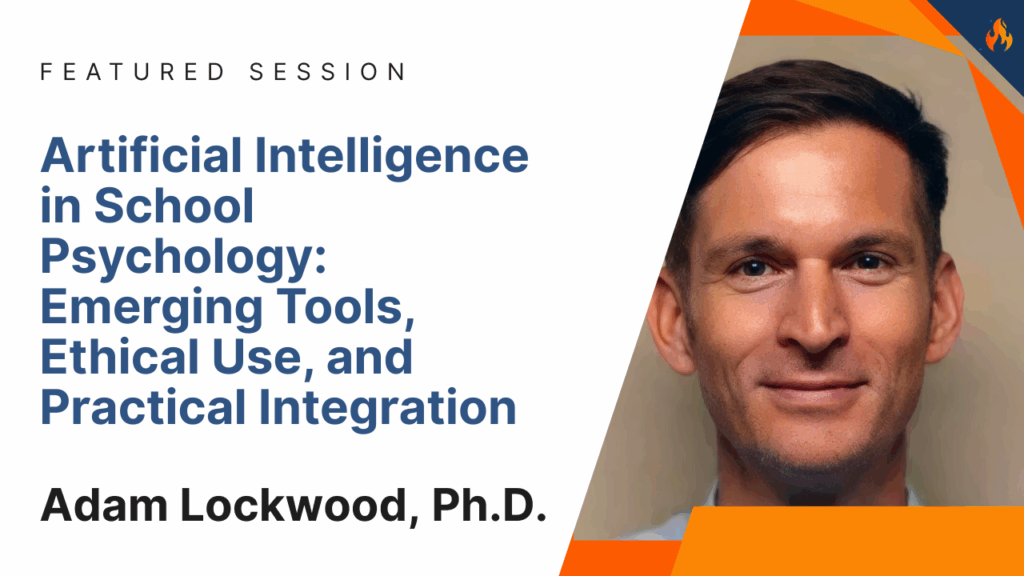
This session explores how artificial intelligence (AI) has transformed the work of school psychologists. Drawing on recent research, ethical frameworks, and real-world examples, the presentation will offer both foundational knowledge and opportunities for hands-on exploration of AI tools. We will consider emerging use cases, practical benefits, and the risks and uncertainties associated with rapid adoption. This session is appropriate for both beginners and intermediate users and will emphasize best practices for safe, effective, and equitable integration into school-based services.
Learning Objectives
After attending this session, participants will be able to:
- Identify common AI tools and describe their potential roles in school psychology practice.
- Apply basic prompting techniques to streamline documentation or communication tasks.
- Analyze ethical and legal considerations when integrating AI into school-based services.
- Describe how AI is currently being used by school-based practitioners based on national and state-level survey data.
- Evaluate the risks of bias, deskilling, and automation in AI-enabled psychological workflows.
Domain 10 Legal, Ethical & Professional Practice
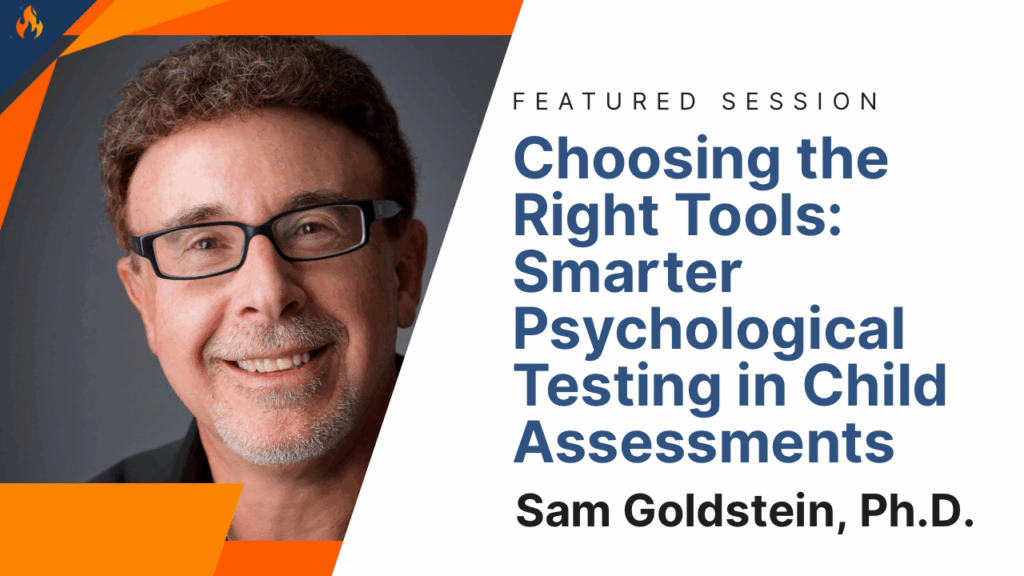
Accurately understanding a child’s emotional, behavioral, and developmental needs requires more than just clinical intuition—it demands the thoughtful use of the right psychological tools.
In this engaging and practical webinar, Dr. Sam Goldstein—nationally recognized psychologist and co-author of the ASRS, CEFI, and RSI—shares a structured approach for using psychological assessments to better evaluate and support children. Participants will learn how to choose and apply both broad and targeted assessment tools to develop a well-rounded and nuanced profile of each child.
Dr. Goldstein will demystify the decision-making process behind selecting the right tests at the right time—whether you’re conducting an initial screening or exploring conditions such as Autism, anxiety, depression, or learning disabilities in greater depth. Through real-world examples and evidence-based insights, attendees will walk away with strategies they can immediately apply to their assessment practice.
Whether you’re new to assessment or looking to refine your approach, this session will help you strike the right balance between comprehensive and focused testing to better serve the children in your care.
Learning Objectives:
By the end of this webinar, participants will be able to:
- Describe a clear, practical framework for understanding and assessing children’s psychological needs.
- Differentiate between broad-band and narrow-band assessments—and know when and how to use each.
- Select tools that offer a comprehensive overview of a child’s functioning across domains.
- Choose focused instruments to evaluate specific concerns such as Autism, depression, anxiety, and learning disorders.
- Make informed, ethical decisions about test selection and interpretation to create individualized, actionable evaluation profiles.
Domain 1 Data Based Decision Making & Accountability
First Session – (8:00-9:50 am) – 2 CE/CPD
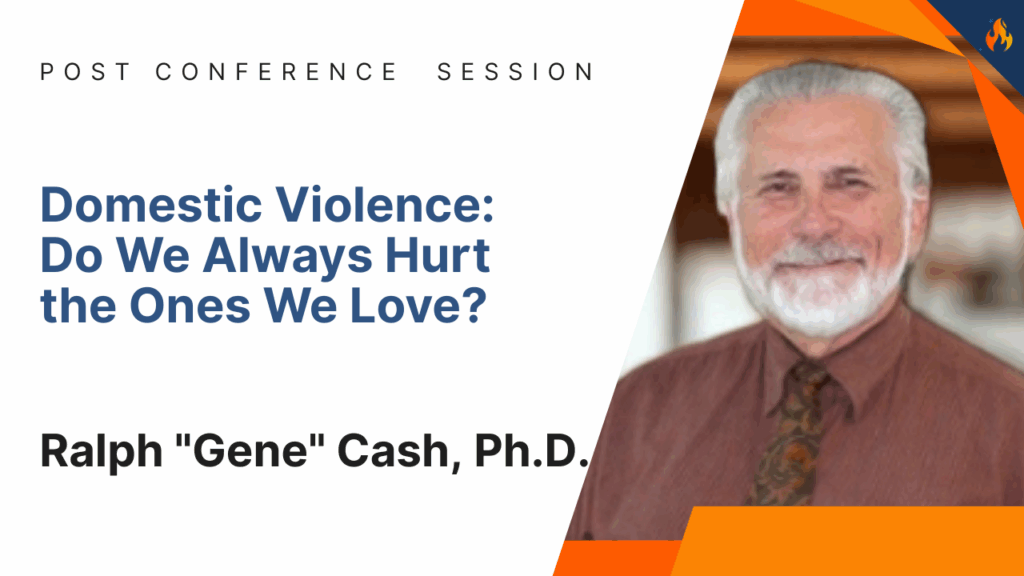
This presentation, which is designed to meet Florida re-licensure requirements for domestic violence continuing education, defines terms, specifies the scope of the problem, explores the effects on children and adolescents, discusses some of the consequences for neuropsychological functioning and mental health, and presents the costs to society. In addition, risk factors, common tactics, indicators of abusive relationships, and key intervention issues are covered.
Learning Objectives
- Describe the scope of domestic violence (DV) nationally,
- Discuss the effects of DV on children and adolescents,
- List at least three effects of exposure to DV on the developing brain,
- Quantify the approximate annual financial costs of DV,
- List at least five risk factors for perpetrating DV,
- Describe at least five common tactics used by DV perpetrators,
- Discuss common indications of an abusive relationship,
- Articulate the mental health effects of DV,
- Describe at least five characteristics of a safety plan for victims, and
- Discuss effective intervention strategies.
Second Session – (10:30 am-12:20 pm) – 2 CE/CPD
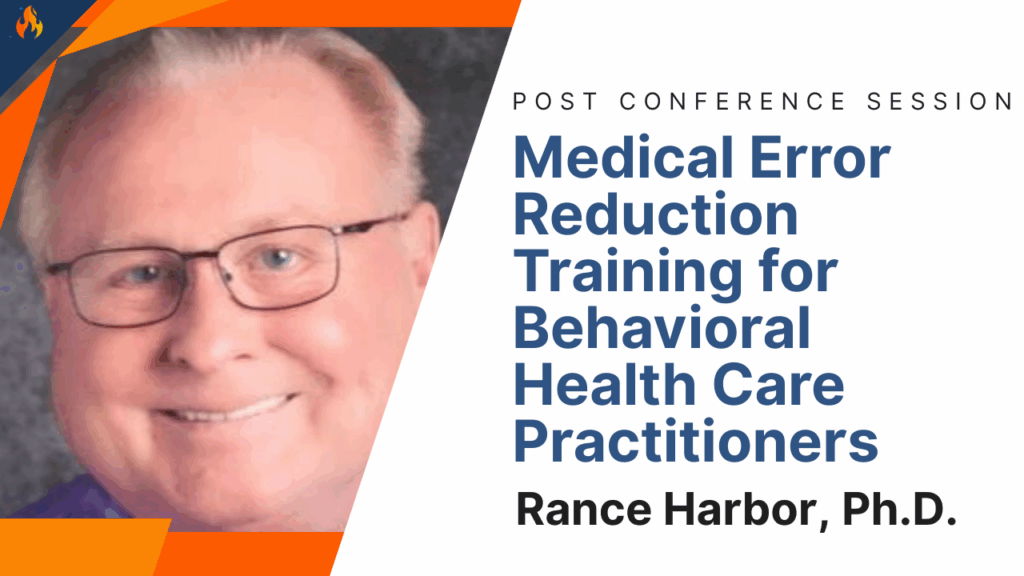
This two-hour training is required for licensure renewal for school psychologists and involves components that will enable the participants to respond to issues involving medical error reduction as it relates to the practice of school psychology and other mental health professionals. Through presentation and discussion of the concepts of root-cause analysis, error reduction and prevention, and reporting standards, the participants will gain additional skills to enhance client safety and well-being.
Learning Objectives
- Increase Psychologists and other Mental Health Professionals’ awareness of medical errors.
- Identify the many different types of medical errors in mental health.
- Identify the causes of medical errors.
- Review effective record documentation process and rationale.
- Teach Psychologists and other Mental Health Professionals effective strategies to reduce medical errors including understanding Root Cause Analysis (RCA)
- Provide Psychologists and other Mental Health Professionals with additional resource information that they and their patients/clients can utilize to help reduce the occurrence of medical errors.
- Provide information about patient/client safety components.
Domain 10 Legal, Ethical & Professional Practice










